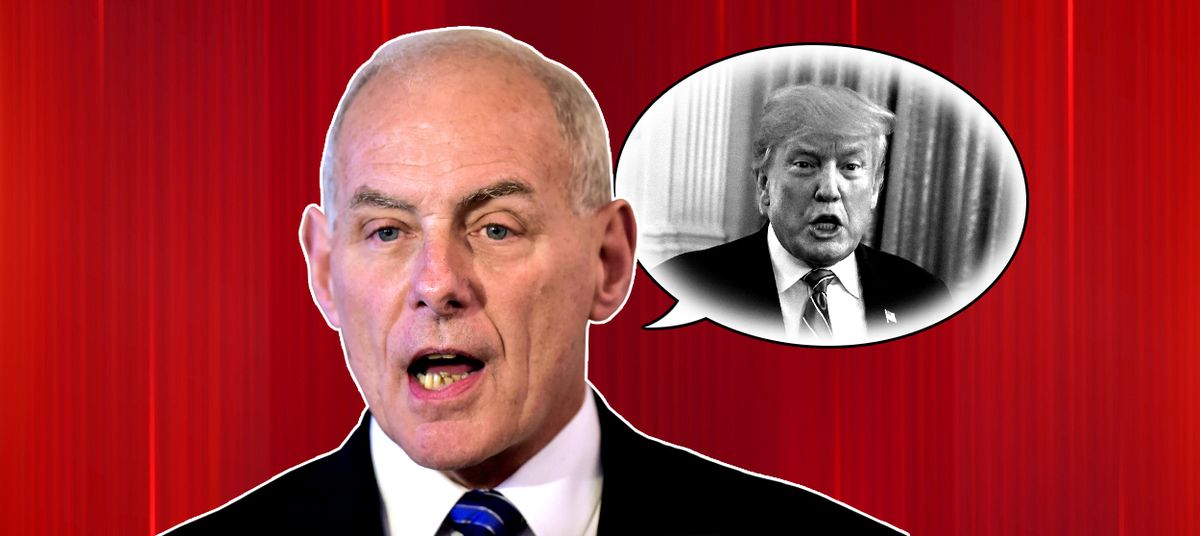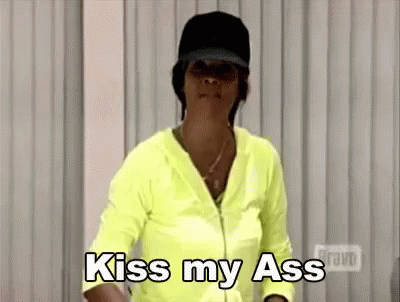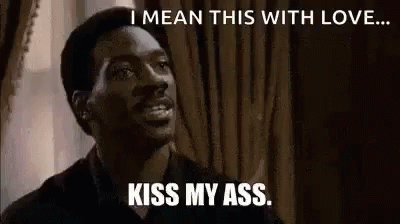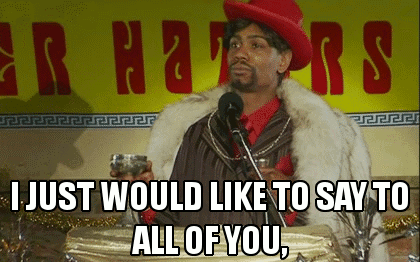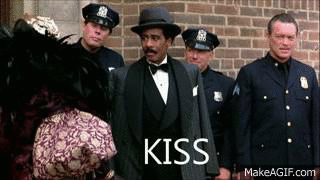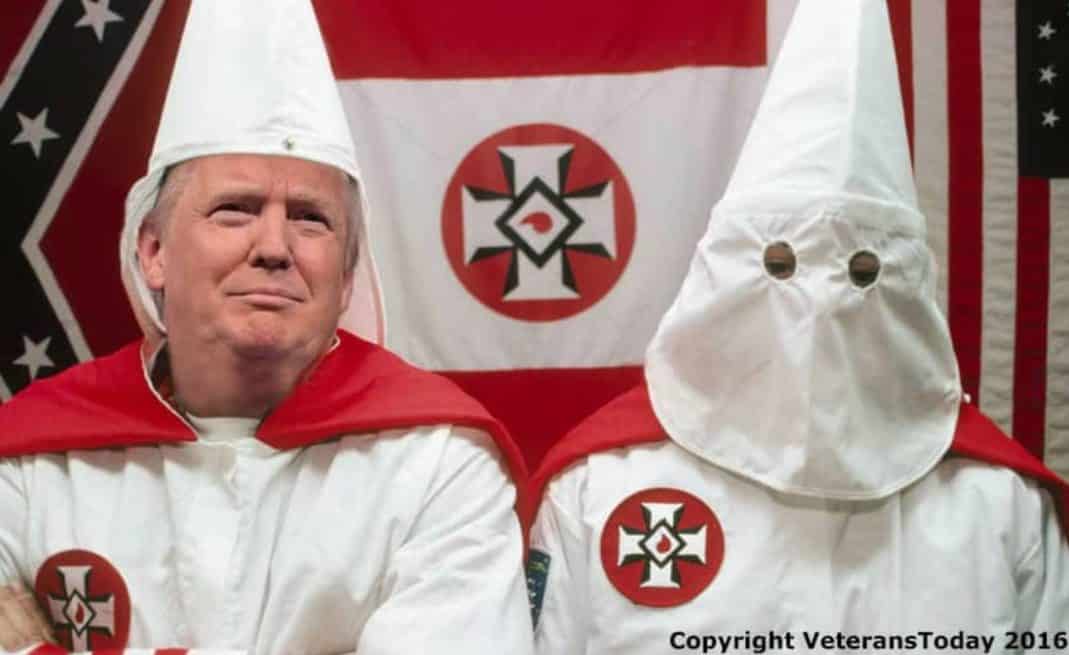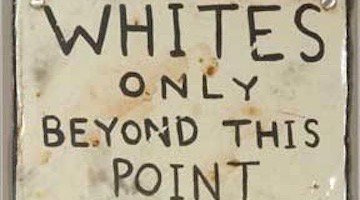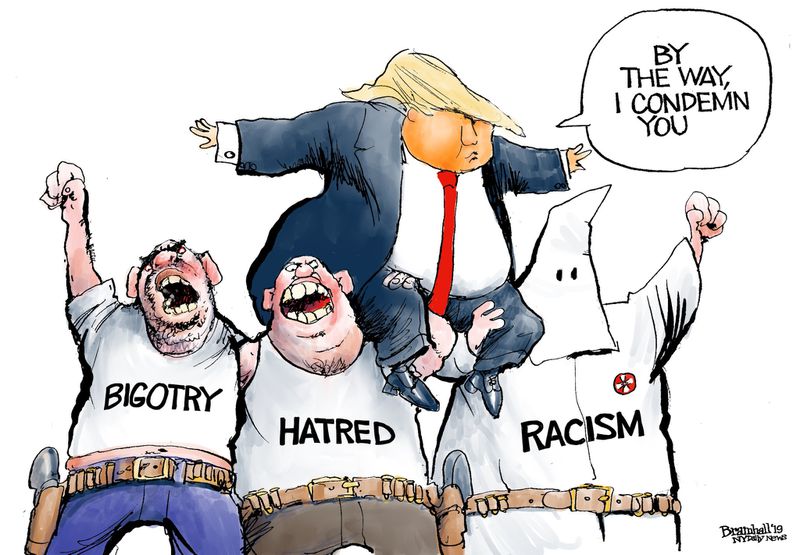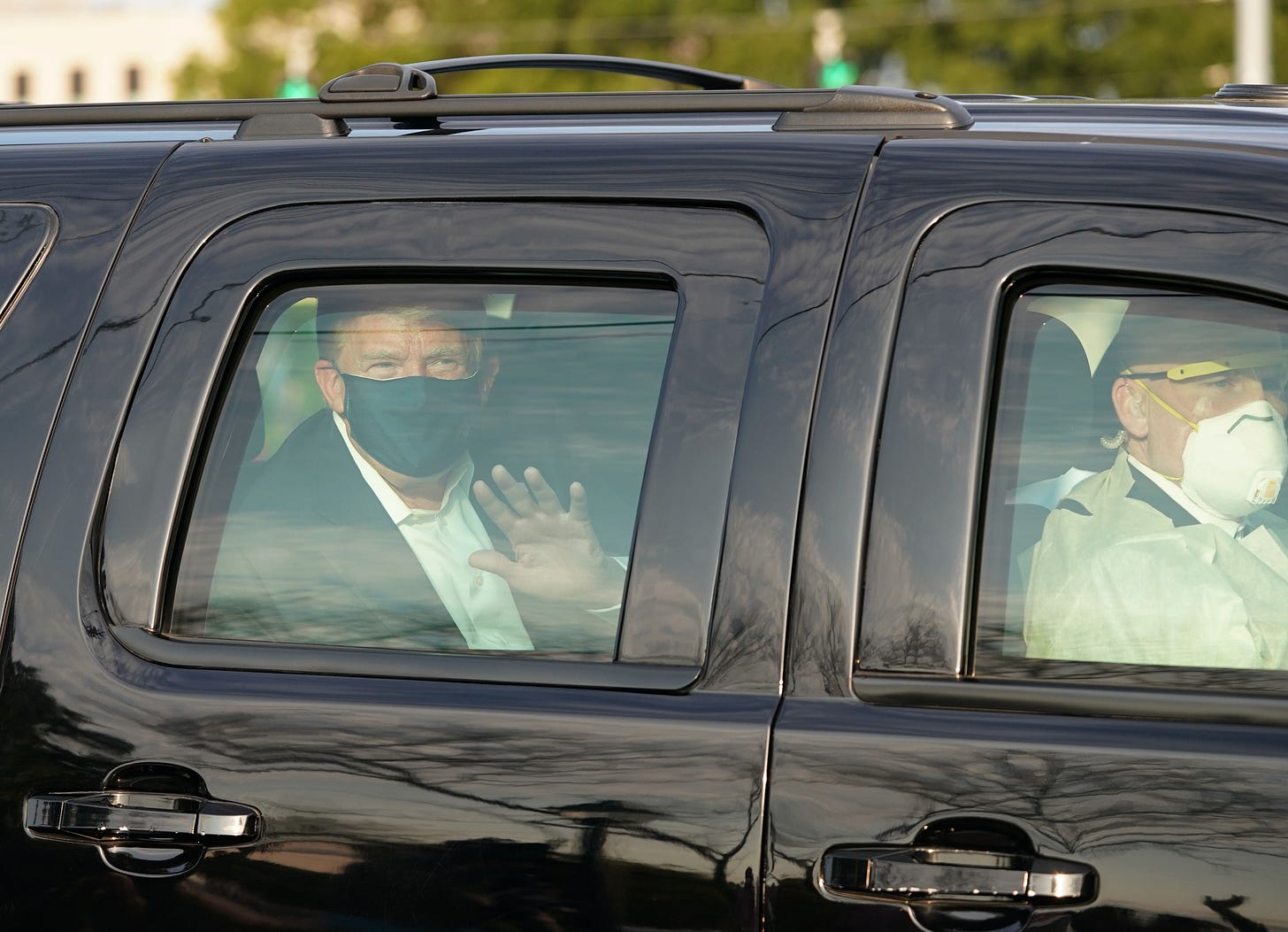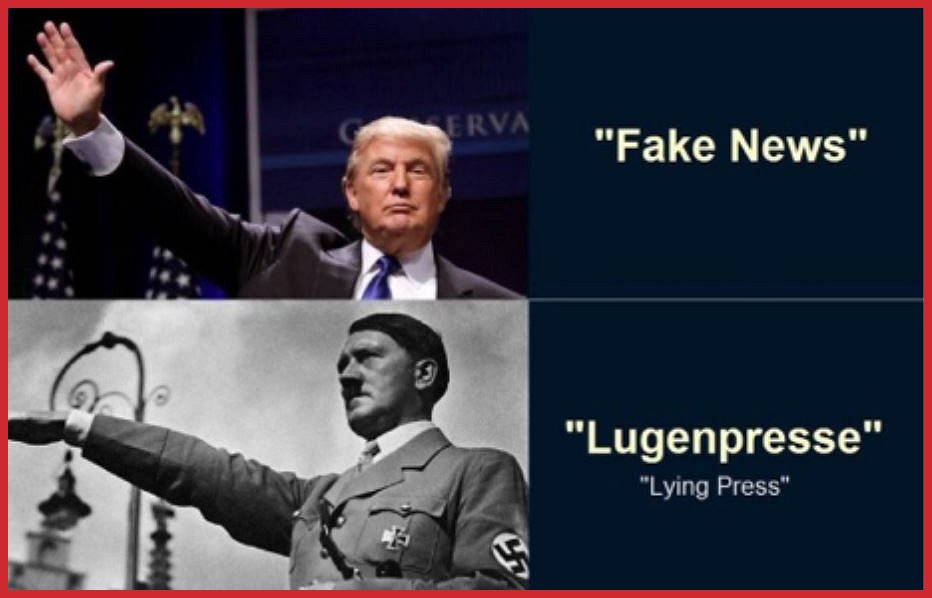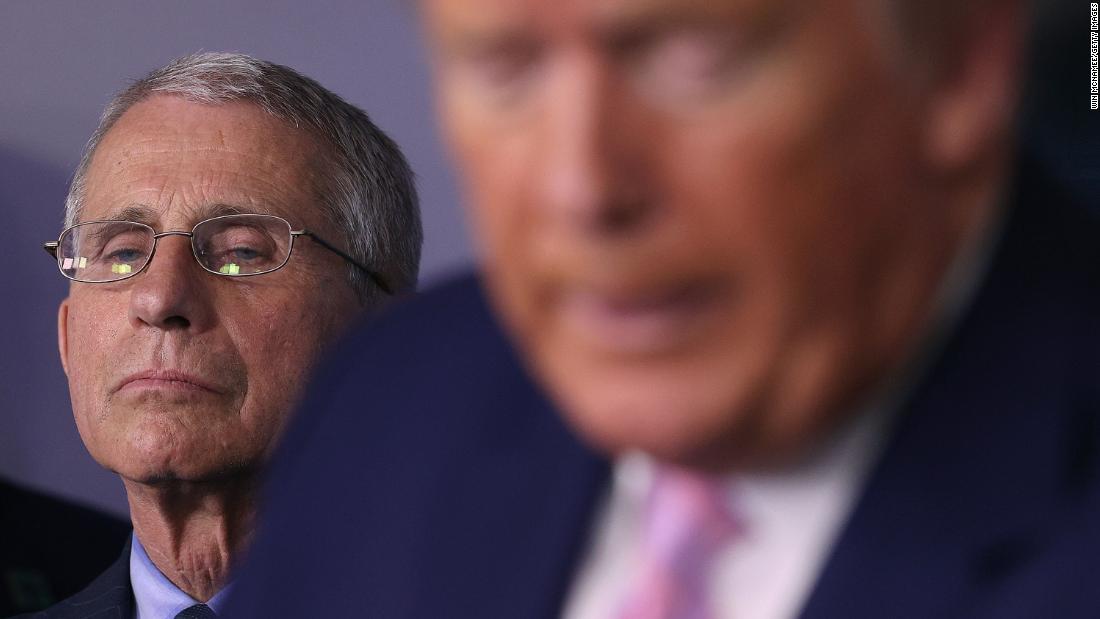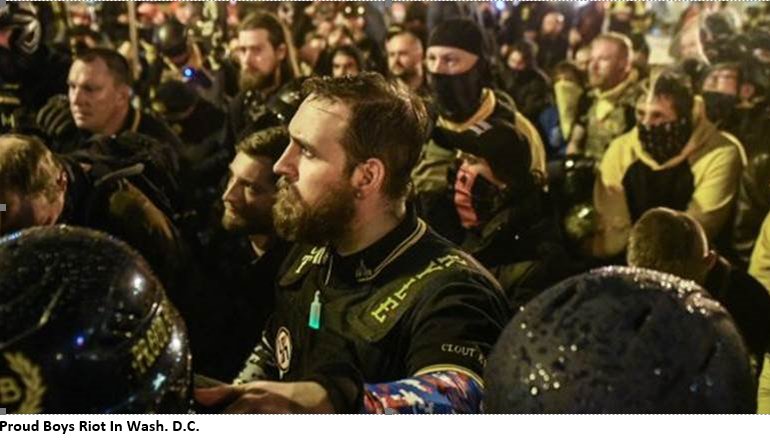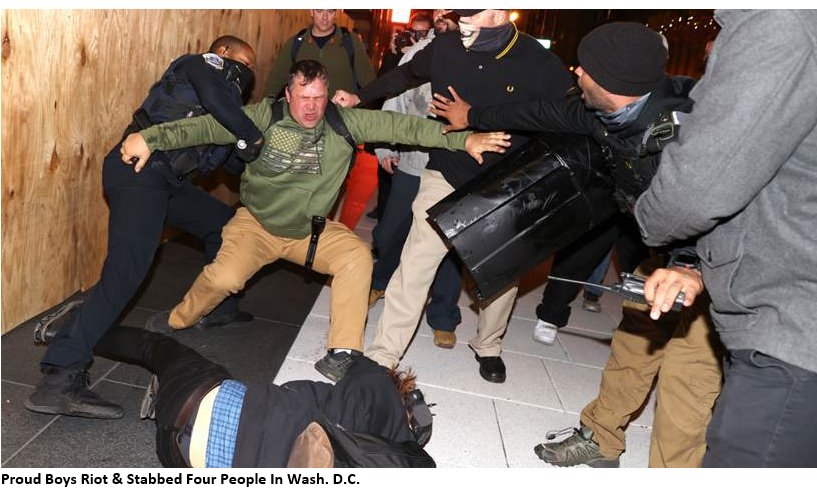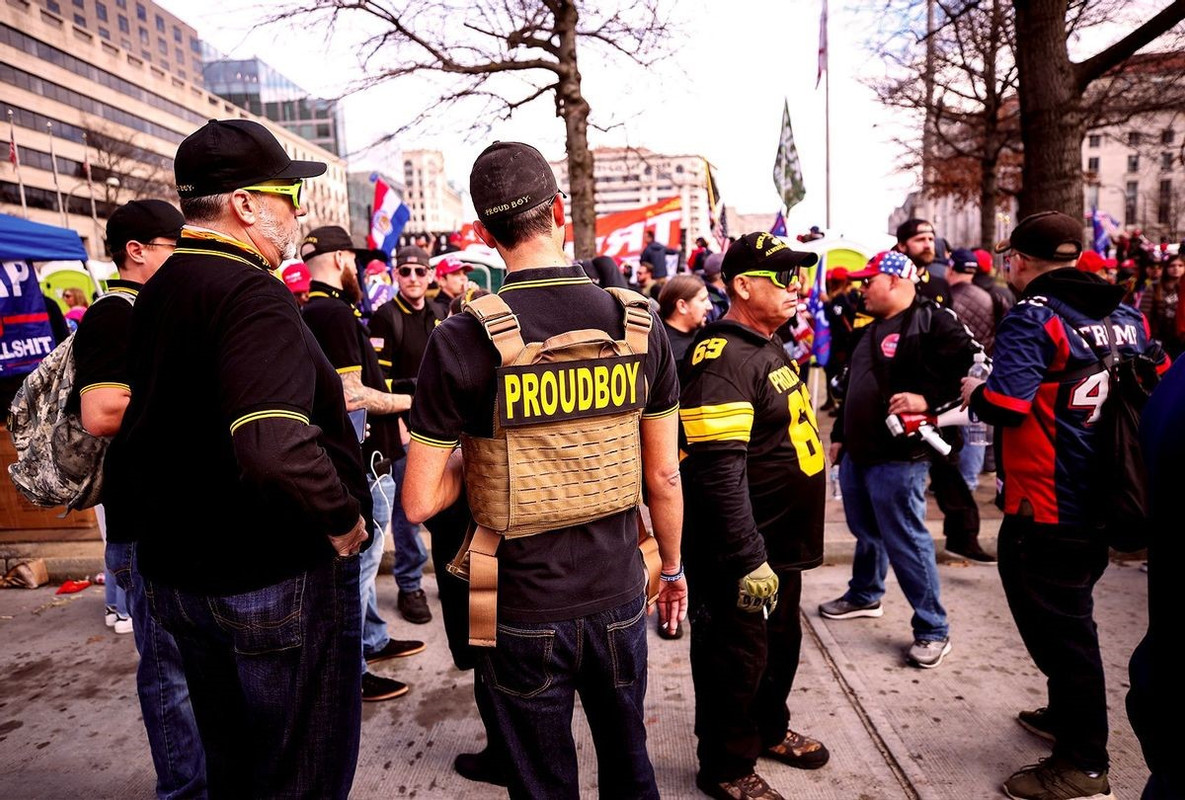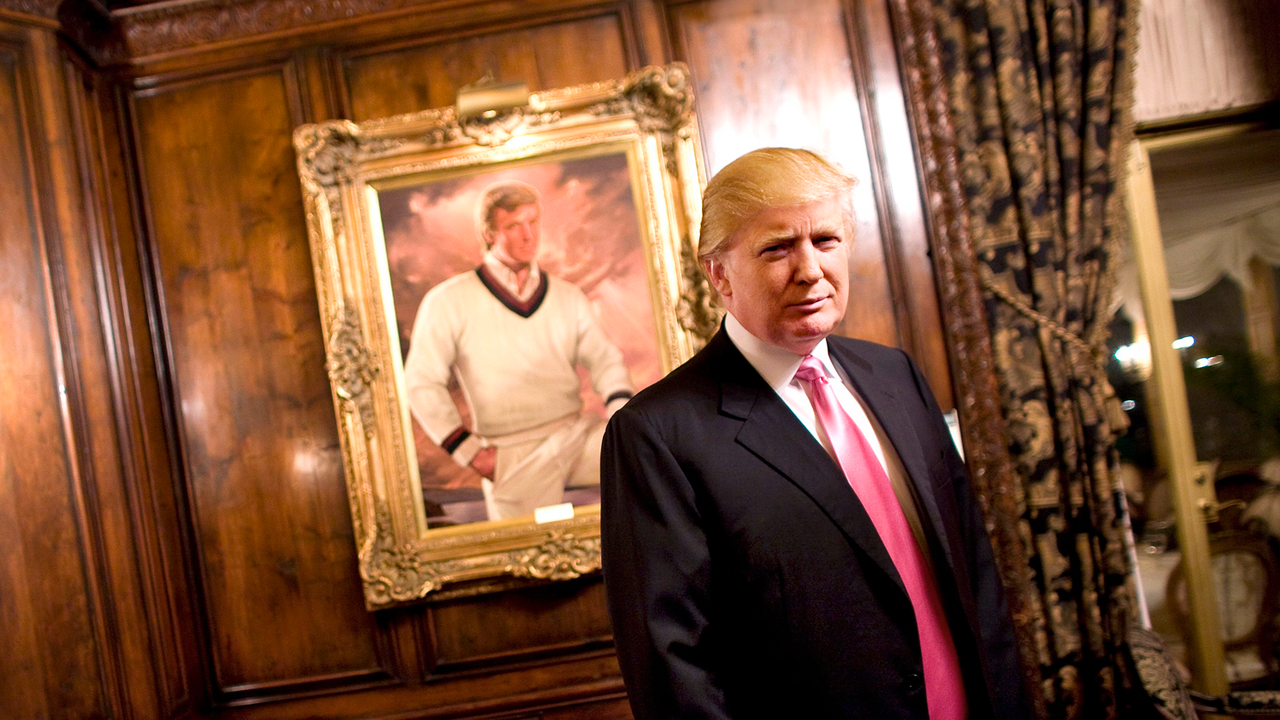All The RepubliKlans Knew Donald Trump was a Scumbag Piece Of SHIT
Why must Black people too often be classified as 'Low Information Voters' ???.
Facts are Facts!!!!
In 2016 I heard fully grown Black men saying they were voting for Drumpf because they "liked his pimp game"
Trump pimps Melania

The chart below is the electrocardiogram of how to beat RepubliKlans at the ballot box
BLACK VOTER TURN-OUT. This is why suppressing Black voters is the #1 tactic of the RepubliKlans.
Again tell me why?
Why must Black people too often be classified as 'Low Information (Stupid) Voters', when their turnout is they key to who wins national elections
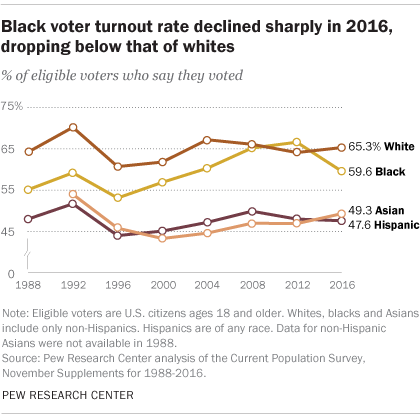
Trump is an elite con man.
Inheriting millions from his father and with his father's support and political connections (tax abatements) he rode the roller coaster of a highly leveraged (10% down borrow the rest) real estate business, using his unique brand of perpetual self-aggrandizement promotion. Surviving more than 5 business bankruptcys, he slogged forward, selling his "brand" to anyone who would pay his price, allowing them to slap his name on buildings and properties worldwide.
Glitz, glamour and bullshit was his brand. T.S.F. (Talk Shit Forever). The details were left to minions of lawyers and bankers, almost exclusively foreign banks since the 1980's bankruptcies.
Trump was always uniquely UNQUALIFIED to be the POTUS.
Unfortunately too many American citizens (80,000) in three States, were too stupid to realize this and gave him an electoral college victory, and the POTUS in 2016.
Look at his actual unedited answer to just one Question he was asked by the Times of London on Jan. 17th 2017.
The man is a babbling man-child sociopath.
The ABC interview tonight Jan. 25, 2017 was just as stupefyingly idiotic.
http://linkis.com/abcnews.go.com/Polit/jtQcuT1
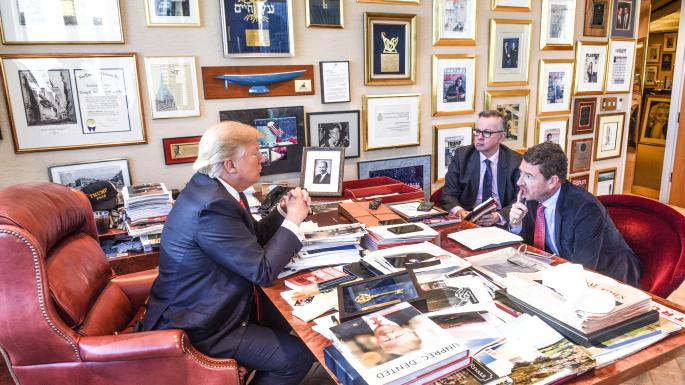
Michael Gove and Kai Diekmann, of the Times of London right, interviewing Donald Trump in his eponymous tower in New York
Question:
Answer:
http://www.thetimes.co.uk/article/full-transcript-of-interview-with-donald-trump-5d39sr09d
~~~~~~~~~~~~~~~~~~~~~~~~~~~~~~~~~~~~~~~~~~~~~~~~~~~~~~~~~~~~~
Profile of the SOCIOPATH
Common features of the behavior of a Sociopath
* Glibness and Superficial Charm
* Manipulative and Conning
They never recognize the rights of others and see their self-serving behaviors as permissible. They appear to be charming, yet are covertly hostile and domineering, seeing their victim as merely an instrument to be used. They may dominate and humiliate their victims.
* Grandiose Sense of Self
Feels entitled to certain things as "their right."
* Pathological Lying
Has no problem lying coolly and easily and it is almost impossible for them to be truthful on a consistent basis. Can create, and get caught up in, a complex belief about their own powers and abilities. Extremely convincing and even able to pass lie detector tests.
* Lack of Remorse, Shame or Guilt
A deep seated rage, which is split off and repressed, is at their core. Does not see others around them as people, but only as targets and opportunities. Instead of friends, they have victims and accomplices who end up as victims. The end always justifies the means and they let nothing stand in their way.
* Shallow Emotions
When they show what seems to be warmth, joy, love and compassion it is more feigned than experienced and serves an ulterior motive. Outraged by insignificant matters, yet remaining unmoved and cold by what would upset a normal person. Since they are not genuine, neither are their promises.
* Incapacity for Love
* Need for Stimulation
Living on the edge. Verbal outbursts and physical punishments are normal. Promiscuity and gambling are common.
* Callousness/Lack of Empathy
Unable to empathize with the pain of their victims, having only contempt for others' feelings of distress and readily taking advantage of them.
* Poor Behavioral Controls/Impulsive Nature
Rage and abuse, alternating with small expressions of love and approval produce an addictive cycle for abuser and abused, as well as creating hopelessness in the victim. Believe they are all-powerful, all-knowing, entitled to every wish, no sense of personal boundaries, no concern for their impact on others.
* Early Behavior Problems/Juvenile Delinquency
Usually has a history of behavioral and academic difficulties, yet "gets by" by conning others. Problems in making and keeping friends; aberrant behaviors such as cruelty to people or animals, stealing, etc.
* Irresponsibility/Unreliability
Not concerned about wrecking others' lives and dreams. Oblivious or indifferent to the devastation they cause. Does not accept blame themselves, but blames others, even for acts they obviously committed.
* Promiscuous Sexual Behavior/Infidelity
Promiscuity, child sexual abuse, rape and sexual acting out of all sorts.
* Lack of Realistic Life Plan/Parasitic Lifestyle
Tends to move around a lot or makes all encompassing promises for the future, poor work ethic but exploits others effectively.
* Criminal or Entrepreneurial Versatility
Changes their image as needed to avoid prosecution. Changes life story readily.
Other Related Qualities:
1. Contemptuous of those who seek to understand them
2. Does not perceive that anything is wrong with them
3. Authoritarian
4. Secretive
5. Paranoid
6. Only rarely in difficulty with the law, but seeks out situations where their tyrannical behavior will be tolerated, condoned, or admired
7. Conventional appearance
8. Goal of enslavement of their victim(s)
9. Exercises despotic control over every aspect of the victim's life
10. Has an emotional need to justify their crimes and therefore needs their victim's affirmation (respect, gratitude and love)
11. Ultimate goal is the creation of a willing victim
12. Incapable of real human attachment to another
13. Unable to feel remorse or guilt
14. Extreme narcissism and grandiose
15. May state readily that their goal is to rule the world
Click & Read Link Below
Profile of a Sociopath



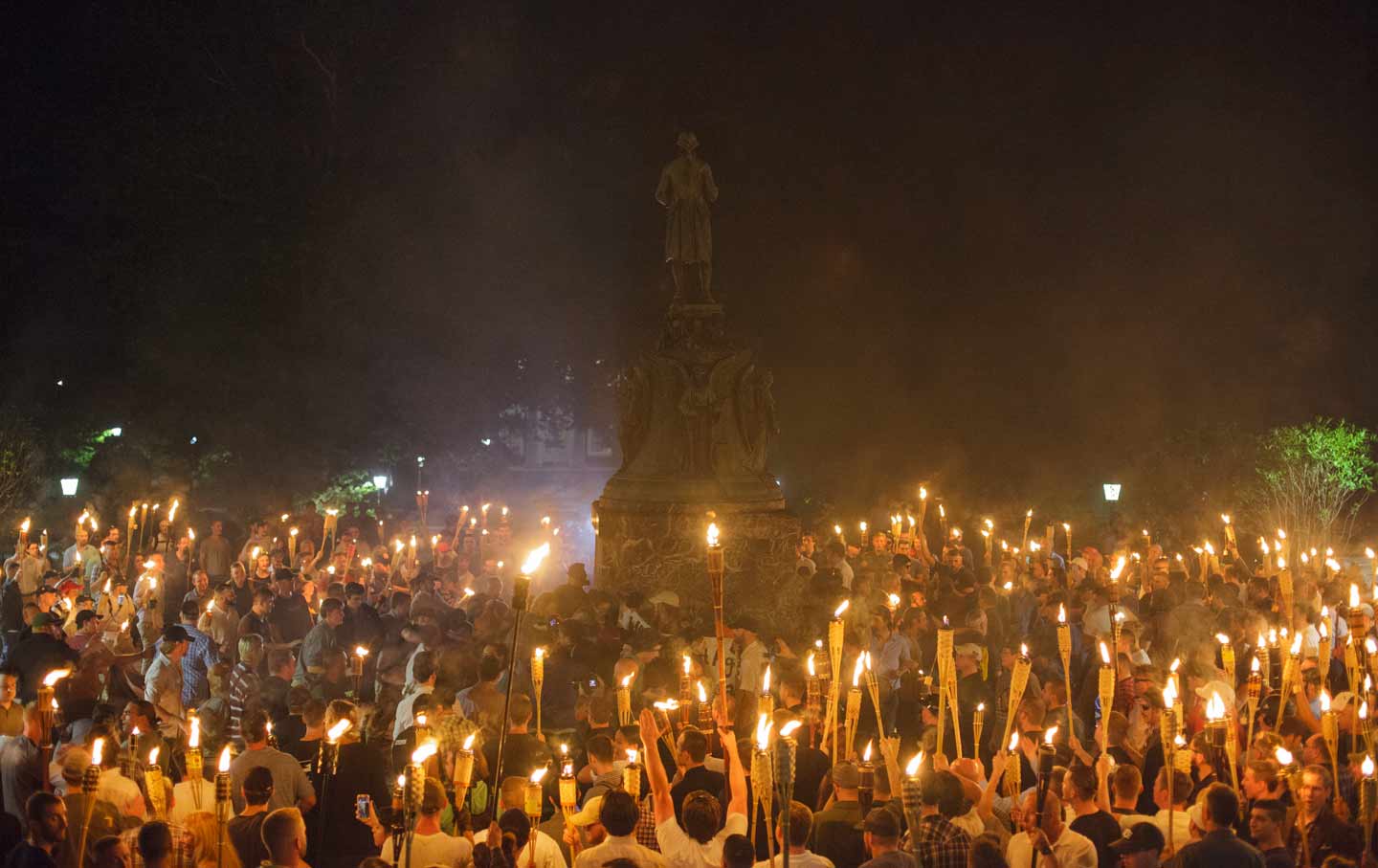
Trump supporting Neo-Nazis and white supremacists marching through the University of Virginia campus with torches.
Why must Black people too often be classified as 'Low Information Voters' ???.
Facts are Facts!!!!
In 2016 I heard fully grown Black men saying they were voting for Drumpf because they "liked his pimp game"
Trump pimps Melania

The chart below is the electrocardiogram of how to beat RepubliKlans at the ballot box
BLACK VOTER TURN-OUT. This is why suppressing Black voters is the #1 tactic of the RepubliKlans.
Again tell me why?
Why must Black people too often be classified as 'Low Information (Stupid) Voters', when their turnout is they key to who wins national elections

Trump is an elite con man.
Inheriting millions from his father and with his father's support and political connections (tax abatements) he rode the roller coaster of a highly leveraged (10% down borrow the rest) real estate business, using his unique brand of perpetual self-aggrandizement promotion. Surviving more than 5 business bankruptcys, he slogged forward, selling his "brand" to anyone who would pay his price, allowing them to slap his name on buildings and properties worldwide.
Glitz, glamour and bullshit was his brand. T.S.F. (Talk Shit Forever). The details were left to minions of lawyers and bankers, almost exclusively foreign banks since the 1980's bankruptcies.
Trump was always uniquely UNQUALIFIED to be the POTUS.
Unfortunately too many American citizens (80,000) in three States, were too stupid to realize this and gave him an electoral college victory, and the POTUS in 2016.
Look at his actual unedited answer to just one Question he was asked by the Times of London on Jan. 17th 2017.
The man is a babbling man-child sociopath.
The ABC interview tonight Jan. 25, 2017 was just as stupefyingly idiotic.
http://linkis.com/abcnews.go.com/Polit/jtQcuT1

Michael Gove and Kai Diekmann, of the Times of London right, interviewing Donald Trump in his eponymous tower in New York
Question:
Do you have any models — are there heroes that you steer by — people you look up to from the past?
Answer:
Well, I don’t like heroes, I don’t like the concept of heroes, the concept of heroes is never great, but certainly you can respect certain people and certainly there are certain people — but I’ve learnt a lot from my father — my father was a builder in Brooklyn and Queens — he did houses and housing and I learnt a lot about negotiation from my father — although I also think negotiation is a natural trait, I don’t think you can, you either have it or you don’t, you get better at it but basically, the people that I know who are great negotiators or great salesmen or great politicians, it’s very natural, very natural . . . I got a letter from somebody, their congressman, they said what you’ve done is amazing because you were never a politician and you beat all the politicians. He said they added it up — when I was three months into the campaign, they added it up — I had three months of experience and the 17 guys I was running against, the Republicans, had 236 years – ya know when you add 20 years and 30 years — so I was three months they were 236 years — so it’s sort of a funny article but I believe it’s like hitting a baseball or being a good golfer — natural ability, to me, is much more important to me than experience and experience is a great thing — I think it’s a great thing — but I learnt a lot from my father in terms of leadership.
http://www.thetimes.co.uk/article/full-transcript-of-interview-with-donald-trump-5d39sr09d
~~~~~~~~~~~~~~~~~~~~~~~~~~~~~~~~~~~~~~~~~~~~~~~~~~~~~~~~~~~~~
Profile of the SOCIOPATH
Common features of the behavior of a Sociopath
* Glibness and Superficial Charm
* Manipulative and Conning
They never recognize the rights of others and see their self-serving behaviors as permissible. They appear to be charming, yet are covertly hostile and domineering, seeing their victim as merely an instrument to be used. They may dominate and humiliate their victims.
* Grandiose Sense of Self
Feels entitled to certain things as "their right."
* Pathological Lying
Has no problem lying coolly and easily and it is almost impossible for them to be truthful on a consistent basis. Can create, and get caught up in, a complex belief about their own powers and abilities. Extremely convincing and even able to pass lie detector tests.
* Lack of Remorse, Shame or Guilt
A deep seated rage, which is split off and repressed, is at their core. Does not see others around them as people, but only as targets and opportunities. Instead of friends, they have victims and accomplices who end up as victims. The end always justifies the means and they let nothing stand in their way.
* Shallow Emotions
When they show what seems to be warmth, joy, love and compassion it is more feigned than experienced and serves an ulterior motive. Outraged by insignificant matters, yet remaining unmoved and cold by what would upset a normal person. Since they are not genuine, neither are their promises.
* Incapacity for Love
* Need for Stimulation
Living on the edge. Verbal outbursts and physical punishments are normal. Promiscuity and gambling are common.
* Callousness/Lack of Empathy
Unable to empathize with the pain of their victims, having only contempt for others' feelings of distress and readily taking advantage of them.
* Poor Behavioral Controls/Impulsive Nature
Rage and abuse, alternating with small expressions of love and approval produce an addictive cycle for abuser and abused, as well as creating hopelessness in the victim. Believe they are all-powerful, all-knowing, entitled to every wish, no sense of personal boundaries, no concern for their impact on others.
* Early Behavior Problems/Juvenile Delinquency
Usually has a history of behavioral and academic difficulties, yet "gets by" by conning others. Problems in making and keeping friends; aberrant behaviors such as cruelty to people or animals, stealing, etc.
* Irresponsibility/Unreliability
Not concerned about wrecking others' lives and dreams. Oblivious or indifferent to the devastation they cause. Does not accept blame themselves, but blames others, even for acts they obviously committed.
* Promiscuous Sexual Behavior/Infidelity
Promiscuity, child sexual abuse, rape and sexual acting out of all sorts.
* Lack of Realistic Life Plan/Parasitic Lifestyle
Tends to move around a lot or makes all encompassing promises for the future, poor work ethic but exploits others effectively.
* Criminal or Entrepreneurial Versatility
Changes their image as needed to avoid prosecution. Changes life story readily.
Other Related Qualities:
1. Contemptuous of those who seek to understand them
2. Does not perceive that anything is wrong with them
3. Authoritarian
4. Secretive
5. Paranoid
6. Only rarely in difficulty with the law, but seeks out situations where their tyrannical behavior will be tolerated, condoned, or admired
7. Conventional appearance
8. Goal of enslavement of their victim(s)
9. Exercises despotic control over every aspect of the victim's life
10. Has an emotional need to justify their crimes and therefore needs their victim's affirmation (respect, gratitude and love)
11. Ultimate goal is the creation of a willing victim
12. Incapable of real human attachment to another
13. Unable to feel remorse or guilt
14. Extreme narcissism and grandiose
15. May state readily that their goal is to rule the world
Click & Read Link Below
Profile of a Sociopath




Trump supporting Neo-Nazis and white supremacists marching through the University of Virginia campus with torches.
Last edited:











